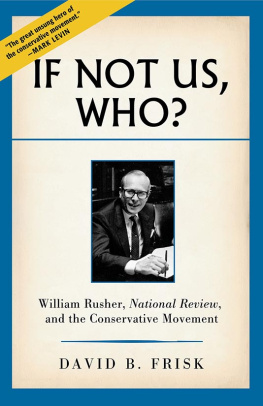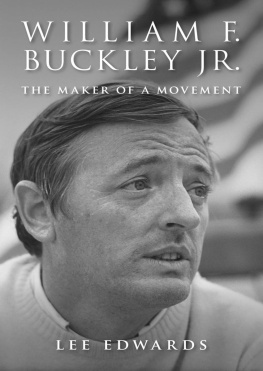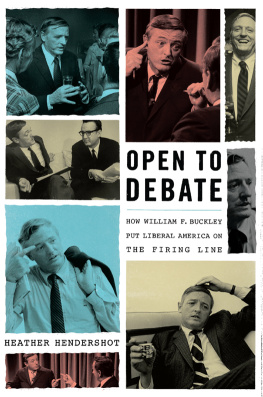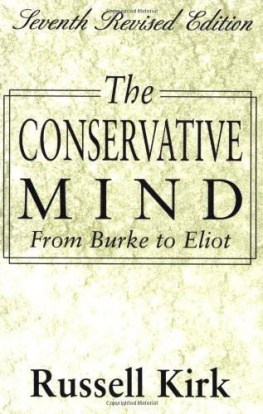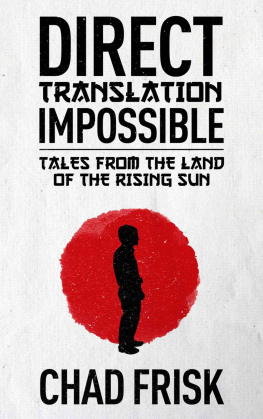David B. Frisk - If Not Us, Who?: William Rusher, National Review, and the Conservative Movement
Here you can read online David B. Frisk - If Not Us, Who?: William Rusher, National Review, and the Conservative Movement full text of the book (entire story) in english for free. Download pdf and epub, get meaning, cover and reviews about this ebook. year: 2014, publisher: Intercollegiate Studies Institute (ORD), genre: Politics. Description of the work, (preface) as well as reviews are available. Best literature library LitArk.com created for fans of good reading and offers a wide selection of genres:
Romance novel
Science fiction
Adventure
Detective
Science
History
Home and family
Prose
Art
Politics
Computer
Non-fiction
Religion
Business
Children
Humor
Choose a favorite category and find really read worthwhile books. Enjoy immersion in the world of imagination, feel the emotions of the characters or learn something new for yourself, make an fascinating discovery.
- Book:If Not Us, Who?: William Rusher, National Review, and the Conservative Movement
- Author:
- Publisher:Intercollegiate Studies Institute (ORD)
- Genre:
- Year:2014
- Rating:4 / 5
- Favourites:Add to favourites
- Your mark:
If Not Us, Who?: William Rusher, National Review, and the Conservative Movement: summary, description and annotation
We offer to read an annotation, description, summary or preface (depends on what the author of the book "If Not Us, Who?: William Rusher, National Review, and the Conservative Movement" wrote himself). If you haven't found the necessary information about the book — write in the comments, we will try to find it.
Best known as the longtime publisher of National Review, William Rusher (19232011) was more than just a crucial figure in the history of the Rights leading magazine. He was a political intellectual, tactician, and strategist who helped shape the historic rise of conservatism.
To write If Not Us, Who?, David B. Frisk pored over Rushers voluminous papers at the Library of Congress and interviewed dozens of insiders, including National Review founder William F. Buckley Jr., in addition to Rusher himself. The result is a gripping biography that shines new light on Rushers significance as an observer and an activiast while bringing to life more than a generations worth of political hopes, fears, and controversies.
Frisk vividly captures the joys and struggles at National Review, including Rushers complex relationship with the legendary Buckley. Here we see the powerful blend of wit, erudition, dedication, shrewdness, and earnestness that made Rusher an influential figure at NR and an indispensable link between conservatisms leading theorists and its political practitioners.
If not us, who? If not now, when?a maxim often attributed to Ronald Reagancould have been Rushers motto. In everything he didpublishing National Review, recruiting and advising political candidates, organizing cadres of young conservatives, taking on liberal advocates in a popular television debate program, writing a syndicated columnhis objective was to build a movement. His tireless efforts proved essential to conservatisms ascendancy, from the pivotal Goldwater campaign through the Reagan era.
Largely unexamined until now, Rushers career opens a new window onto the history of the conservative movement. This comprehensive biography reintroduces readers to a remarkable man of thought and action.
David B. Frisk: author's other books
Who wrote If Not Us, Who?: William Rusher, National Review, and the Conservative Movement? Find out the surname, the name of the author of the book and a list of all author's works by series.

